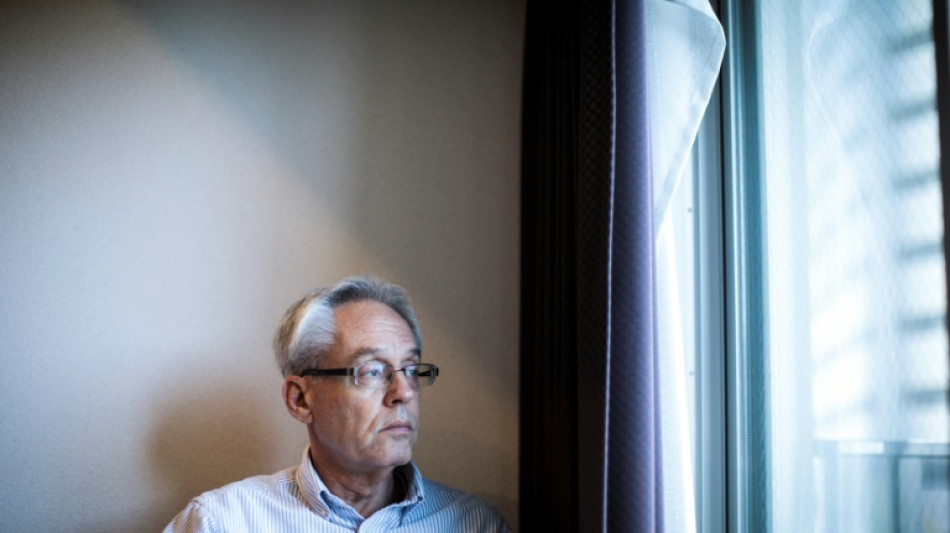

Ghosn aide Kelly faces verdict in Nissan trial
Former Nissan chief Carlos Ghosn remains at large in Lebanon, but on Thursday, his aide Greg Kelly will learn his fate in a Tokyo courtroom after a nearly 18-month trial.
Kelly, an American citizen who was detained alongside Ghosn in November 2018, is accused of attempting to concealplanned payments to the former Nissan boss in a scheme to under-report his compensation. Prosecutors are seeking a two-year jail sentence.
The soft-spoken 65-year-old has always denied the claims, and the outcome of the trial is being closely watched in Japan and abroad, with the US ambassador to Tokyo saying the case was a top priority.
Ghosn escaped Japan hidden in an audio-equipment box in December 2019, saying he feared he could not receive a fair trial in Tokyo. He ended up in Lebanon, which does not have an extradition treaty with Japan.
Nissan opted to plead guilty, leaving Kelly as the only person still fighting charges in Japan, in a saga that shocked the international business community and sent ripples through the auto industry.
The allegations against Kelly centre around claims he helped Ghosn between 2010 and 2018 avoid disclosure of 9.1 billion yen ($79 million) that Nissan planned to pay after his retirement.
Kelly has denied any wrongdoing, saying that there were merely exploratory discussions about a "legal way" to keep Ghosn in the fold after his retirement and prevent him from joining a competitor.
Some have viewed Kelly as little more than a scapegoat in a case that centred around Ghosn.
"Kelly was arrested with the expectation that he could be 'turned' to testify against Ghosn," said Stephen Givens, a business lawyer in Tokyo who has followed the case.
"When Ghosn escaped to Beirut, the prosecutors were left with a weak, free-standing case against Kelly," he told AFP.
Kelly's lawyers argue there was never any agreement on how much Ghosn might receive and why, which meant there was no requirement to disclose anything to Japanese authorities.
Nissan disagrees, and pleaded guilty in a separate case, with prosecutors seeking a symbolic fine of 200 million yen ($1.7 million).
- 'Not the central character' -
Kelly plans to appeal any guilty verdict, even if the sentence is suspended, his lawyer Yoichi Kitamura told AFP in September.
Japanese prosecutors have a close to 99 percent conviction rate in cases that go to trial, but how things will pan out for Kelly is "very difficult" to predict, said Keisuke Matsuoka, a law professor at Senshu University in Tokyo.
"This is the first case of its kind" in Japan, he told AFP.
"It touches on the significance that we attach to the disclosure of compensation and examines the question of possible malice related to this," he added.
Givens argues that a not guilty verdict would be "humiliating" for prosecutors and Nissan and "undermine the legitimacy of the original case against Ghosn."
For his part, Ghosn, who faced several additional financial misconduct charges, has insisted he and Kelly are innocent and that Japanese prosecutors worked to help Nissan push him out in a "palace coup."
"If he's guilty, many Japanese should also be in prison," he said from Beirut during an online press conference in December.
Kelly has been unable to leave Japan since his detention in 2018 and has been joined in Tokyo by his wife, who had to enrol in Japanese lessons to secure a visa to stay in the country.
There has been other fallout from the case, with two Americans who helped Ghosn flee the country extradited from the US to Japan and sentenced last year to between 20 months and two years in prison.
Matsuoka said the "amount of money involved, the duration, and the positions of those individuals involved," could all be used to point to deliberate deception.
But, he added, "Mr Kelly is not the central character."
"It is difficult to imagine he will receive a harsh sentence."
W.F.Walter--MP




